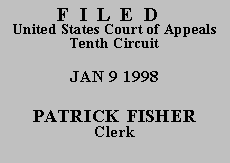

| UNITED STATES OF AMERICA, |
|
Mr. Figueredo was convicted of conspiracy to distribute five kilograms or more of cocaine, 21 U.S.C. §§ 846, 841(a)(1), 841(b)(1)(A) and sentenced to 145 months imprisonment. That conviction was affirmed on direct appeal. See United States v. Figueredo, No. 92-1142, (10th Cir. Oct. 15, 1993) (unpub. order and judgment). He subsequently filed a § 2255 motion on July 12, 1996, based on the sole ground of ineffective assistance of counsel. The district court denied the motion. See D. Ct. Judgment filed Sept. 10, 1996. On April 28, 1997, Mr. Figueredo filed a motion to correct sentence, see Fed. R. Crim. P. 35, that the district court denied. See D. Ct. Order filed May 9, 1997. On May 21, 1997, Mr. Figueredo sought reconsideration of that order relying in part on § 2255. The district court viewed this as a second motion under § 2255 and denied relief. See D. Ct. Order filed May 28, 1997. Mr. Figueredo then sought relief under Fed. R. Civ. P. 60(b). See Motion filed June 23, 1997. The district court denied relief. See D. Ct. Order filed June 25, 1997. In response to Mr. Figueredo's notice of appeal and request for a certificate of appealability filed July 11, 1997, the district court denied the certificate. See D. Ct. Order filed July 15, 1997.
Amendment 518 to the Sentencing Guidelines was effective November 1, 1995, and plainly could have been raised in Mr. Figueredo's first § 2255 motion filed in July 1996. See In re Sims, 111 F.3d 45, 47-48 (6th Cir. 1997) (movant not entitled to file a second § 2255 motion where change in Sentencing Guideline occurred prior to denial of first § 2255 petition). Mr. Figueredo has not demonstrated that his two motions before the district court rest upon
(1) newly discovered evidence that, if proven and viewed in the light of the evidence as a whole, would be sufficient to establish by clear and convincing evidence that no reasonable factfinder would have found the movant guilty of the offense; or
(2) a new rule of constitutional law, made retroactive to cases on collateral review by the Supreme Court, that was previously unavailable.
28 U.S.C. § 2255; see 28 U.S.C. § 2243(b)(3)(B) (required certification by three-judge panel of the court of appeals). The amendment of an application note to the Sentencing Guidelines simply does not implicate a new rule of constitutional law.
Mr. Figueredo's appeal (including his motion for a certificate of appealability) is construed as an application to file successive § 2255 motions and is DENIED. The district court's orders of May 28, 1997 and June 23, 1997 denying relief are VACATED, and we REMAND to the district court with instructions to DISMISS Mr. Figueredo's May 21, 1997 and June 23, 1997 § 2255 motions.
IT IS SO ORDERED.
Entered for the Court
Paul J. Kelly, Jr.
Circuit Judge
*. This order and judgment is not binding precedent, except under the doctrines of law of the case, res judicata, and collateral estoppel. This court generally disfavors the citation of orders and judgments; nevertheless, an order and judgment may be cited under the terms and conditions of 10th Cir. R. 36.3.
**. After examining the briefs and the appellate record, this three-judge panel has determined unanimously that oral argument would not be of material assistance in the determination of this appeal. See Fed. R. App. P. 34(a); 10th Cir. R. 34.1.9. The cause is therefore ordered submitted without oral argument.